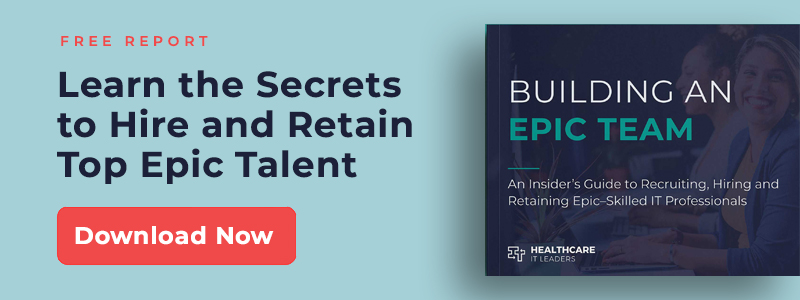Blockchain for Healthcare: A Recommended Reading List
 “Blockchain technology is going to revolutionize healthcare and the method in which every patient interacts.”
“Blockchain technology is going to revolutionize healthcare and the method in which every patient interacts.”
That prediction, from technology consultant Peter Nichol in 2015, is far from being fully realized, but blockchain is gaining momentum among health IT thought leaders as a way to increase data security and interoperability while reducing costs.
In finance, blockchain technology is best-known as the foundation for the digital currency, BitCoin. In healthcare, organizations like Deloitte, the Mayo Clinic and even Google have identified a growing number of use cases for blockchain as a means for more efficient and transparent data exchanges.
What is Blockchain?
As described in this recent overview from Healthcare IT Analytics, “a blockchain is a defined series of identical copies of information held locally by every member of the chain, instead of in a single, central repository. When one entity within the community wants to make a change or addition to the data set, every other participant must agree, cryptographically or otherwise, that the change is valid.”
Still confused? Check out our blockchain reading guide with links to white papers and articles from industry leaders that more fully explain the blockchain movement in healthcare.
Deloitte: Blockchain Opportunities for Healthcare
This overview page includes links to the firm’s recent white paper describing the opportunity to transform Healthcare Information Exchanges (HIE) using blockchain technology.
Key quote: “While blockchain technology is not a panacea for data standardization or system integration challenges, it does offer a promising new distributed framework to amplify and support integration of health care information across a range of uses and stakeholders.”
IBM: Healthcare Rallies for Blockchains - Keeping Patients at the Center
A 2017 report outlining the results of a survey conducted among 200 healthcare executives in 16 countries.
Key quote: “Legacy systems and investments in existing EHRs need not be rendered obsolete. Blockchains don’t require organizations to abandon existing databases; they can integrate what exists. Data records can be stored “off chain” and linked to blockchain technology. In other words, you can pull data from existing processes to create a single version of truth.”
EY: Blockchain in Health
In this 2016 white paper, EY analysts outline “how distributed ledgers can improve provider data management and support interoperability.”
Key quote: “Blockchain technology will fundamentally change how payers and providers share claims information, how provider data is updated and matriculated through a network, how a patient’s medical records are shared and updated as she moves through the care continuum (from a primary care provider, to a specialist, to a pharmacist), how population health data is aggregated and analyzed, how clinical trial data is recorded, and how prescription drugs are tracked and monitored through the supply chain.”
Peter Nichol: Blockchain Technology - The Solution for Healthcare Interoperability
A November 2015 blog post from Nichol, one of the early promoters of blockchain solutions for healthcare.
Key quote: “The beauty of blockchain technology, applied to healthcare, is a centralized platform that decentralizes health data (medical records) increasing security of sensitive information. A patient can now use their own signature, combined with that of a hospital signature to unlock data to provide more secure access to medical information for use in treatment. The patient by using their profile, has full control of their medical information and can select the information shared and viewed by providers or doctors.”
Healthcare IT News: Blockchain's potential use cases for healthcare - hype or reality?
A recap of innovation expert Tamara StClaire's talk at the blockchain symposium at HIMSS 17.
Key quote: "Think about transferring ownership of data to patients. All of a sudden we have a new paradigm about the way we think of privacy. We may need to set default levels for the people who are uncomfortable with the magnitude of that responsibility. There's a lot we need to dig into, and that conversation needs to start."
